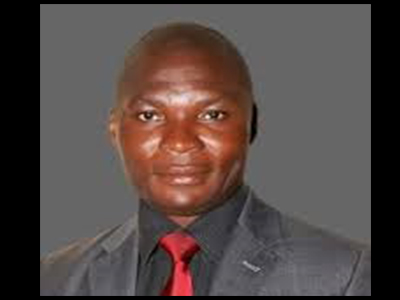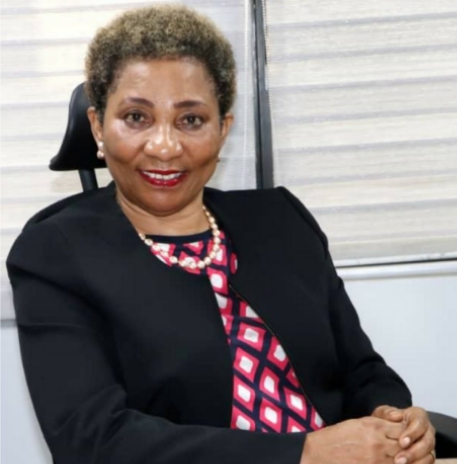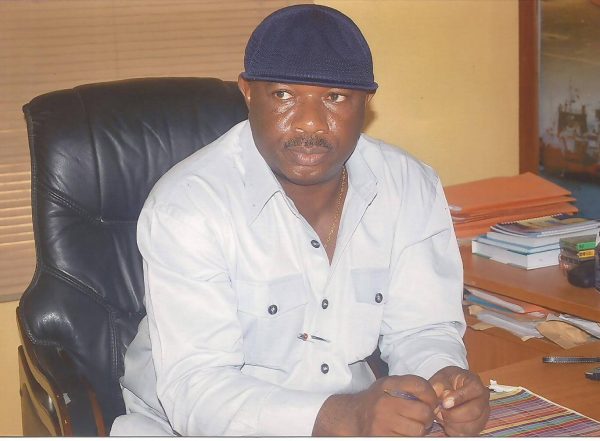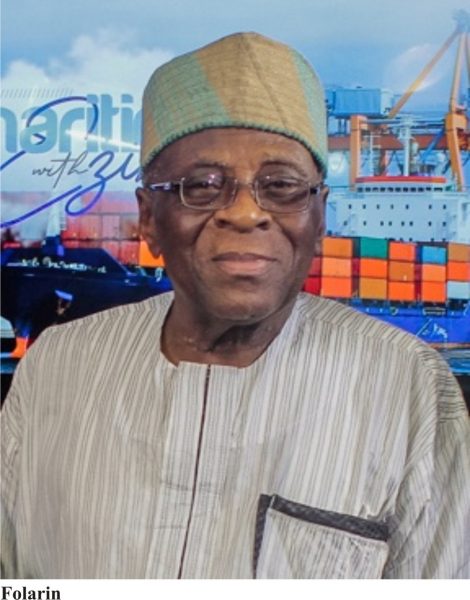How Female Seafarers Can Prevent Abuse Onboard Vessels – Macfoy
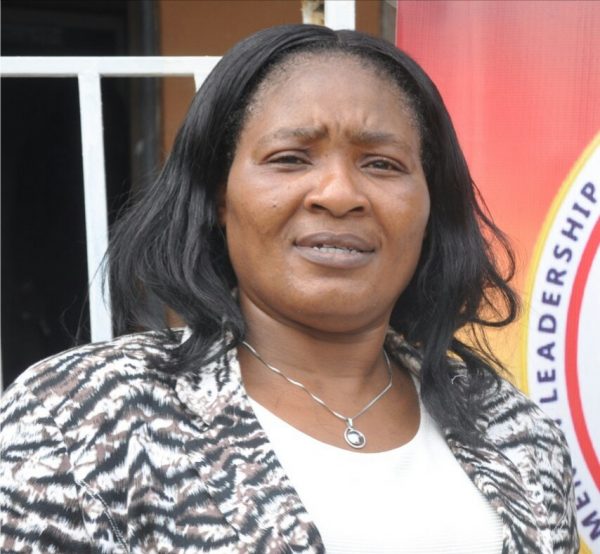
By Kenneth Jukpor and Ayoola Olaitan
Mrs. Rollens Macfoy is the Managing Director of Ocean Deep Services Limited. As part of efforts to mark the International Day of Seafarers on June 25th, her company provided Personal Protective Equipment (PPE) as well as food items for seafarers at Continental Shipyard in Lagos. At the event, MMS Plus fetched this interview as Macfoy gives insight into how women can avoid abuse and intimidation onboard vessels. She also highlights the new opportunities that have emerged in training and other academic fields in the COVID-19 era. Excerpts:
Today is world seafarers’ day and you have carried out a magnanimous activity. What inspired this and give comments about seafarers as they celebrate today?
It is all about humanity, respect for professionalism and mentorship to encourage the seafarers to keep doing what they are doing. If you are doing something good and nobody says anything about it you could stop and get discouraged thinking you are going the wrong way.
Like I said in my opening remarks when you carry this goodwill and magnanimity out of the normal area, that is your home, then you will be seen to be doing something extraordinary. If this is only done within your home, of course it is good, your children will grow well and the members of staff will grow well but who are the people they are going to meet outside? In a corporate environment your staff is well trained and you mentor them. However, there are people outside who come in contact with your staff and they could sway them to go the wrong way, hence the need to spread good deeds across board.
If you train your child well and you don’t bother about other children around you, you are making a mistake because the other children you’re neglecting are in the environment that your children will relate with. This is what I think our government, stakeholders and heads of different institutions should bear in mind. If we all bear this in mind it is not just about social responsibility or corporate responsibility but it is basically about impacting lives and making tomorrow a better place for everyone.
In 13 years of DEMASA Marine’s existence, the organization hasn’t experienced such a gesture from a private outfit before, how do you feel being the first person to do this?
I was actually surprised when the company’s Human Resource Manager, LTT, Mrs. Theodora Nwaeze said that. I didn’t have any discussion with her but I just sat down and thought about how best to mark the 2020 Day of Seafarers. I decided to do this and chose to come here. Yesterday, I went to one of my vessels as early as 7:30am. I went with some palliatives. I climbed the vessel and went to the bridge. I stayed awhile with the seafarers to discuss with them. I saw the foreign seafarers and captains. I was with them till about 11am, but before then I had been thinking about some of my vessels on the sea. I couldn’t go there but I visited the ones within.
I have learnt that mentoring a child requires more; you will really need to do so much and this role can’t be played by parents alone. In the past you didn’t own a child alone as the parent, the community owns the child. As a community, we ought to come together to train children and make them better persons for a better society in the future.
The present individualistic tendencies we have in society have resulted in the decadence and other ills we see as the outcome in society today. These were the things I thought of and decided that it will be nice to touch on other people I didn’t already know. I began to call companies and this company agreed. I told them that I want to show appreciation to the seafarers. I was told that they would be having a management meeting and get back to me which they did and I was invited.
Coming here today, the comment that no one has done this is really surprising. I didn’t know that nobody has ever done this before, but I really feel good about it because that is my desire.
The rape issue has become a major one in the country at the moment. What are the modalities in terms of protection and security for the female seafarers?
The first thing we tell them is that if they notice any strange movement no matter how little, they should report it. Don’t wait until it is bad or until someone has made you miserable on board.
It might not even be rape but can make you miserable on board, the moment you notice anything of such, the next action should be to report it. Also, anytime we want to put a female onboard we hold meetings with the male there and make them understand that they are under watch.
I do that here but I don’t know about other companies. We have to ensure that men are being watched. They must put on their best behaviour within the period that the female seafarer is onboard because she is not a meal for anybody. We also advise the female seafarers to be careful and maintain their distance like the COVID-19 where social distancing has become important to stay safe. If they don’t get intimate with the men, such things will not happen. Though, we know they are some men who don’t behave themselves no matter the social distance they will still persist. However, when you maintain social distance and you observe that someone is trying to cross the boundary, it is ideal to make an official report or raise an alarm. That way, the person would also know that he is under watch and anything could happen.
Talking about female seafarers, you mentioned that this company has done a lot in terms of providing opportunities. Can you give figures on what has been done and the current situation in terms of women involved in seafaring?
Today, I think the participation of women in seafaring is less than 10 percent globally. We are pressing to increase this in Africa and Nigeria through the African Women in Maritime (WIMAFRICA) which is a pressure group. As the Vice President of the Nigerian chapter, I can also tell you that we are doing a lot to address this in the country.
As a woman and for my company, I also thrive to ensure that female seafarers get a place. We don’t want them to be marginalized or deprived of any opportunity because they are women. You might have vessels that refuse to take them but nothing stops you from talking to different other companies that can take them. I know that LTT has done a lot in this area, so what stops other organizations from doing the same.
We believe that as time goes on the participation of women will keep growing. Recall that seafaring wasn’t seen as a female profession in the past as it was a male dominated profession, but the world is changing and this trend is also changing. Everything is turning around, so we also have to give it time and be optimistic even as we go about the advocacy.
Do you think the Nigerian government is doing enough for our seafarers and with celebration of this year’s seafarers’ day?
Honestly, they are not doing enough even though it may look like they are trying. Most times when I go to government occasions, I have reservations because they always use the Nigeria Navy to replace the Merchant Navy. They give them the upper seats and give them all the accolades. Nigeria Navy has a crucial position because of the responsibility to protect the nation’s waterways with vessels and ensure security, but they are not Merchant Navy.
Merchant Navy should also be commended and extolled so that they are proud of their jobs. This way others would be interested in picking a career in seafaring. Today, Merchant seafarers are trampled under the ground. Most of these seafarers feel sorry for themselves as only those working in places like the Nigerian Ports Authority (NPA), Nigerian Maritime Administration and Safety Agency (NIMASA) and some other top private companies like LTT, are proud enough to wear their uniforms on the road.
Some of them feel like they are jobless and this ought not to be the case. Seafaring is a renowned profession as they are the heartbeat of the world. At any given time, even during wars, seafarers must move because people must eat, cloth and live. Most countries have put in a lot to support and celebrate seafarers and there is a dire need for the Federal Government of Nigeria to have a closer look and reposition seafarers. This is not just in terms of finances but giving the profession a sense of belonging by organizing them and making them independent.
We have seen the impact of the COVID-19 pandemic across various sectors, how has this affected OceanDeep Services and the business of training seafarers?
It has affected us just like it affected every other sector. Most of our training is done online. Interestingly, we still get calls for training from people across the world. Recently someone contacted us from the USA on our training. Despite the lockdown, we were able to provide the training online and the Certificate was issued.
So, we have been able to carry on like other people and I want to credit COVID-19 for bringing this high level of enlightenment about innovative approaches to learning. Across most fields of endeavour, people now realize they don’t have to be everywhere as they did in the past. They can be part of meetings from their homes or offices. I think this new culture should remain after the pandemic. People should maintain this new development that the pandemic introduced because it actually helped to save cost and stress. It might not be at all the time but it shows we can leverage on the digital world to get things done better and faster.



